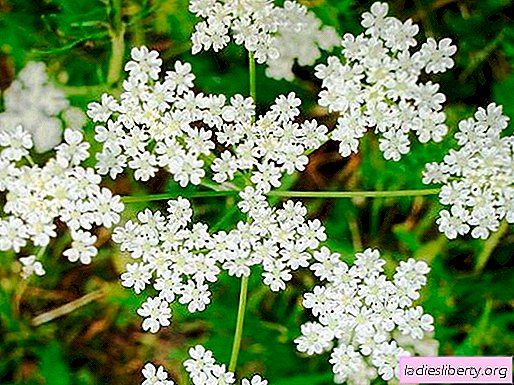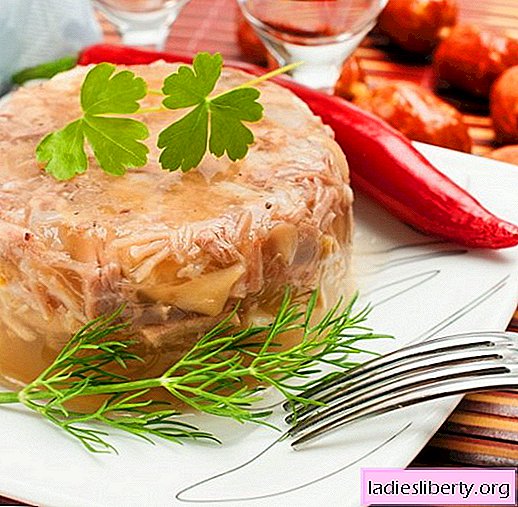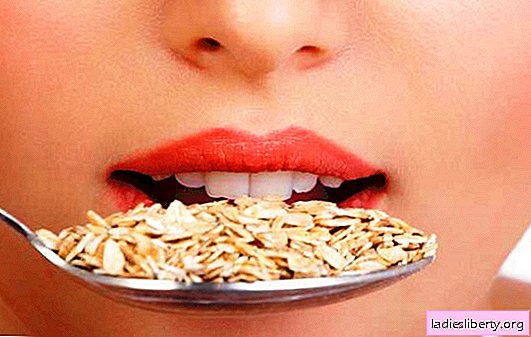
Anise - general description
Anise is an annual herbaceous plant belonging to the umbrella family. It has an erect round stem branching at the top and a thin spindle-shaped root. The lower leaves are whole and with a long stalk, while the upper leaves are linear-lanceolate and twice pinnate. The anise has white small flowers collected in an umbrella, from which the fruits later ripen - ovoid dvushemyanki. Flowering occurs in June - July. Anise has a strong specific smell - sweet and spicy.
Anise - types and places of growth

Anise is widely distributed in Cyprus, in Greece and Lebanon. To obtain aromatic fruits, it is grown in countries such as Italy, Spain, India, Turkey, Mexico, China, USA and Chile. Among the states that make up the former Soviet Union, anise is cultivated most in Russia, Ukraine, Moldova, the countries of Central Asia and the North Caucasus.
Anise - healing properties
The use of anise is effective in diseases of the digestive system (secretory, motor functions of the intestine are enhanced), flatulence, and to stimulate appetite. It is advised to be used by nursing mothers to improve lactation.
This antiseptic and expectorant is successfully used for bronchitis, cough, whooping cough, laryngitis, tracheitis and other ailments of the upper respiratory tract. Anis has proven himself in the treatment of painful menstruation and cycle disorders. Normalizes the liver, pancreas.
Anise - dosage forms
For the manufacture of therapeutic agents, fruits are used. When most of them ripen on the plant - it is mowed and dried in sheaves, then threshed, freed from impurities. The healing properties of anise fruits are preserved for three years.
Anise - recipes
For use inside, use an infusion of anise fruits (two teaspoons per glass of boiling water). Consume 3-4 times a day for half an hour before meals in the fourth part of a glass.
It is also widely used tincture of anise fruits (20 g. Per half a glass of 40% vodka or alcohol), which is used 2-3 times a day for 20 drops.
As an expectorant drug for bronchiectasis, Oleum Anisi (anise oil) is used: 2-3 drops per day, 5 drops in refined sugar.
With aphonia (loss of voice), it is recommended to use a decoction of aniseed seeds. To prepare it, you need to fill half a glass of seeds with a glass of water and boil for about 15 minutes. When the broth cools slightly, it is filtered and mixed with the fourth part of a glass of linden honey, then brought to a boil, poured into another bowl and add 1 tbsp. l cognac. Accepted every half hour until a positive effect.
Liquor Ammonii anisatus (ammonia anise drops) is taken 3-4 times a day, 10 drops in refined sugar as an expectorant drug.
Tinctura Opii benzoica (opium-benzoic tincture) is taken 20-40 drops when coughing, as an expectorant.
For external use, an ointment is used, which is prepared from the powder of the seeds of ordinary anise and the root powder of white hellebore, taken equally and mixed with pork lard in a ratio of 1: 2. This is an anti-pediculosis remedy (use the ointment very carefully, since white hellebore is a poisonous plant).
Anise - contraindications
In rare cases, anise can cause skin allergies. Its use is strictly contraindicated in chronic gastrointestinal diseases, pregnancy and peptic ulcer of the stomach and duodenum. Initial use must begin with small doses. With good tolerance (absence of headaches, nausea, etc.), the next day, the use of a working dosage is allowed.
Comments











